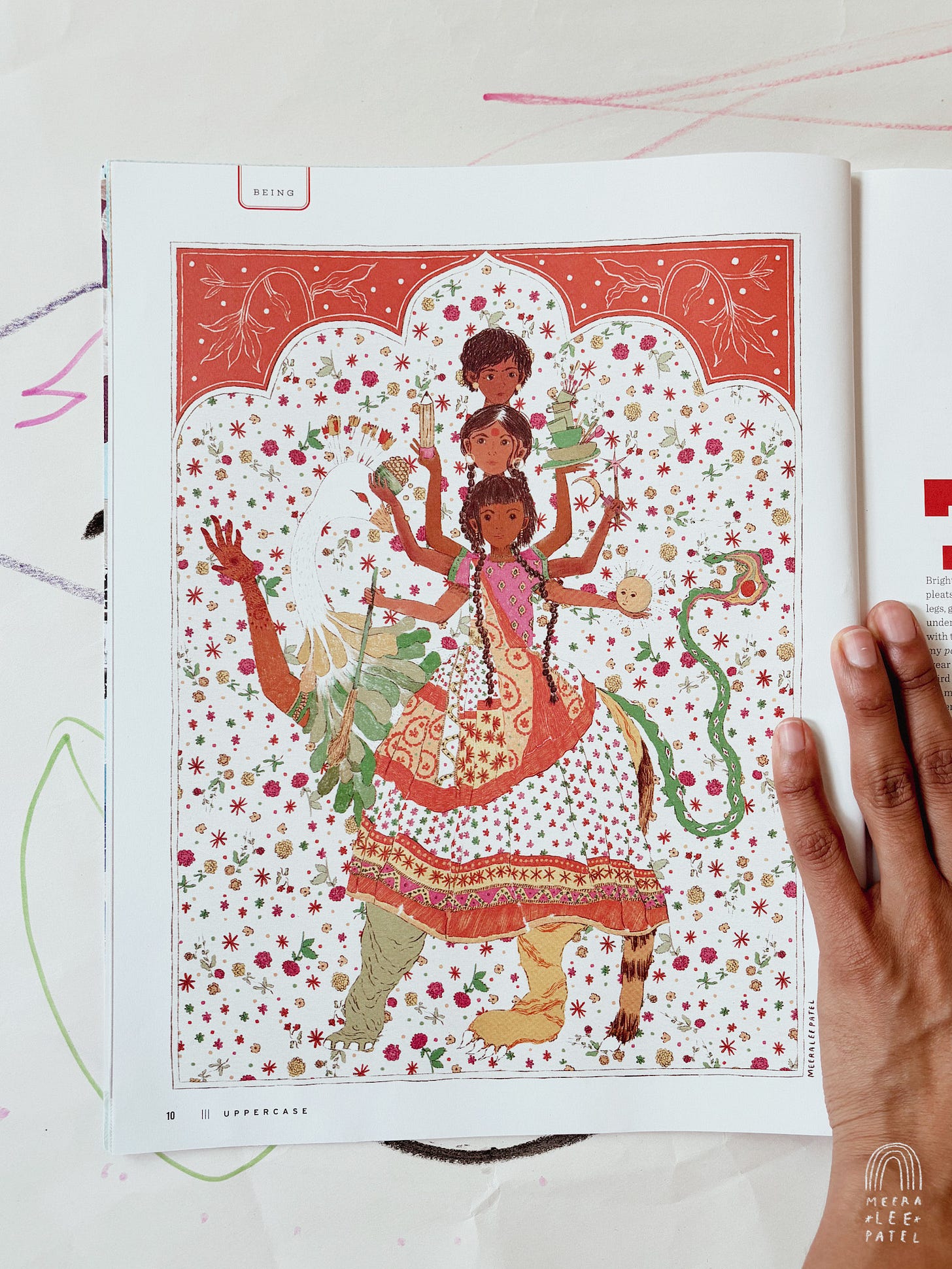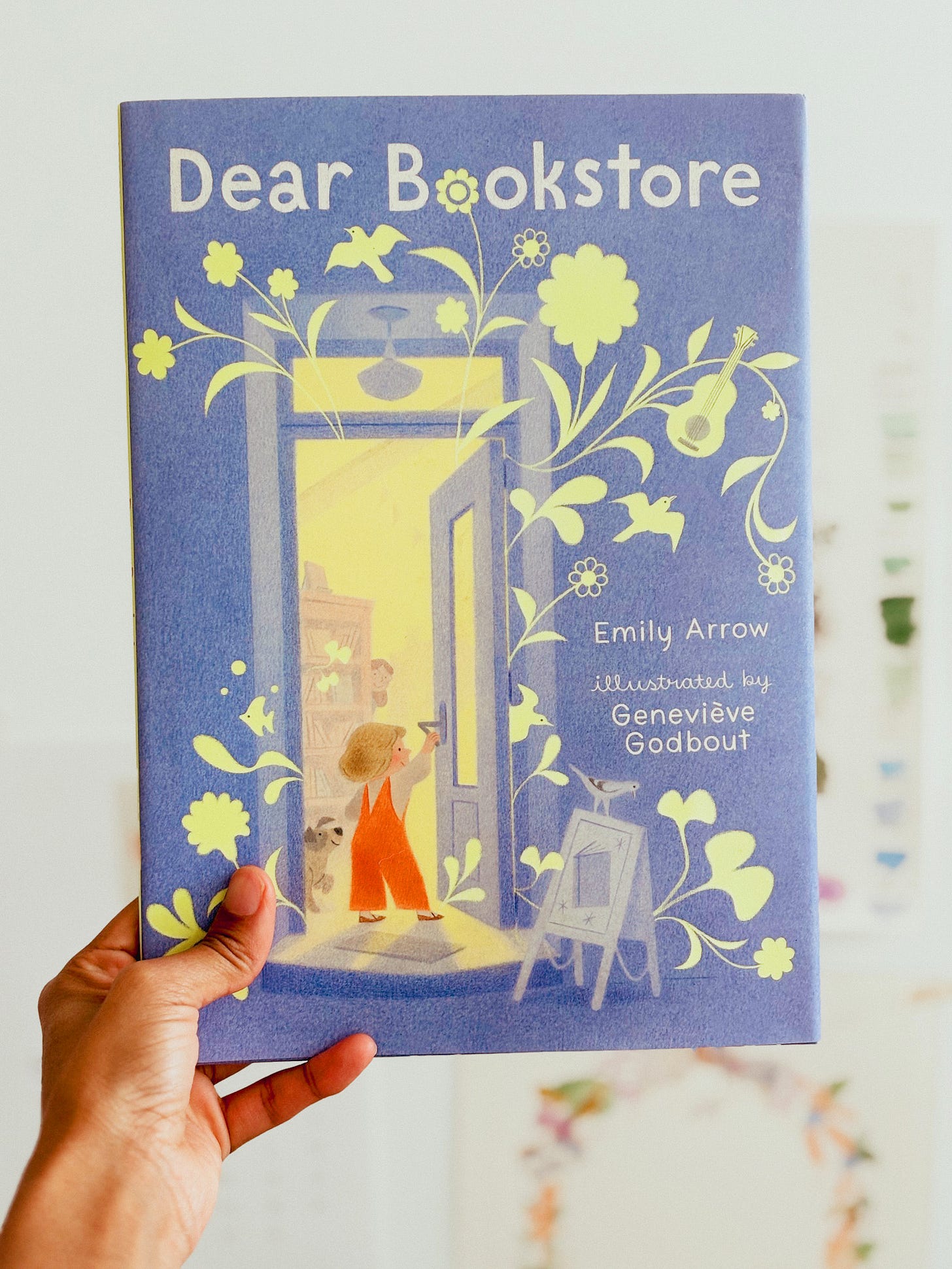
A note: Apologies if you just received a draft email from me. Our power went out, and the wrong email was sent!
A year from now, here are five things from this week that I'd like to remember:
MONDAY
For the first time since 2019, T and I go to a show. The last time I saw a musician play life was six years ago, in Nashville—before the pandemic, before lockdown, before two children and graduate school and all of the rest. I was a different person then, carrying different dreams and hopes and worries.
I’m rarely in a crowded room anymore. I barely remember what it’s like to be part of a collective movement—to be collectively moved, to collectively move alongside hundreds of other people who are listening to the same music that I am. I’m so used to making art alone, within the privacy of my own studio that I often forget what it’s like to witness someone making their own right in front of me; a special kind of bravery.
We settle into our seats at Stifel Theatre and watch Paul Simon walk onto the stage. It is strange to see the person who created the soundtrack to my life. No other musician has taken me from childhood to having children of my own, no other musician who has a song for every moment I remember most. He plays his latest record and I’m flooded with my own past: the many Novembers spent deep in conversation on park benches; the hundreds of letters we wrote; the long drives to Atlantic City, salt water taffy and ankles in the sea; the friendships I believed would follow me to the end of my life; the friendships that haven’t lasted long enough to see me to my forties.
Paul plays and I remember exactly where I was when the Twin Towers fell; watching the dawn chase the night over the Atlantic; years of loneliness and years of being known; running to catch the SEPTA train to Philadelphia; the many New York City winters bleeding me; the gold bracelets I gave to my loved ones on my wedding day, and the one I’ve worn on my right wrist, each day, for the past six years. He plays and I listen to the many people he has been. He plays and I remember myself. After all of these years, after changes upon changes, I am more or less the same.
The next day, we see Ben Kweller in a small, crowded space that transports me to my teenage years. It’s a stark opposite to the evening before: the sound is too loud and the floors too sticky. Hundreds of us smushed together, faces full of earnest eagerness, waiting for a 43-year old man play the songs we love most. It’s a stark opposite to the evening before: we jump and we dance and I don’t look backwards once. I’m having fun, something that the seriousness of me doesn’t say or feel that often but that I want more of. That’s what good art does: it wakes the sleeping parts of you.
Ben plays Thirteen and I think of what love used to be, he plays Family Tree and I think of Dorian, the sweetness of a young child finding his way; he plays On My Way and I’m out of my head now, finally in this room, with the music in me. He plays Lizzy and I’ve got T’s hand in mine. We’ll keep love alive, even on Texas time.
TUESDAY


“The more intricate and ornate a panetar is, the more status the bride’s family was believed to have. The panetar symbolizes marital bliss and prosperity; historically, it also promises fertility—a blessing seen not only for the bride herself, but for the family she was marrying into.
At the time, it felt romantic to wear a garment previously worn by two people I loved, on their wedding days, on my own. As much as it connected me to my mother and her sister, my aunt, it also connected me to a longer tradition of compromise and, hopefully, continued compassion between me, my chosen partner, and the family we formed. Now, years later, my wedding panetar means something different to me. It doesn’t resemble prosperity or fertility or wealth, but choice. I consider what marriage meant for my mother and my aunt—and, because of their choices, compromises, and triumphs, what it is now allowed to mean for me. Like any piece of art, each sari is created, painstakingly, by a specific set of hands, guided by certain techniques and traditions, for a specific purpose. However, it’s story and meaning is created by the person who wears it.”
—An excerpt from my latest essay, The Wedding Sari, for Issue #65 of Uppercase Magazine
WEDNESDAY
I can’t believe I haven’t shared Dear Bookstore with you yet! This picture book about the importance of bookstores was written by my dear friend Emily Arrow and illustrated by my friend Geneviève Godbout.
It’s such a gorgeous and sweet love letter to bookstores, the third place they’ve become for so many of us, and the community they foster. Please shout about it, purchase a copy, and request it at your library.
THURSDAY
“Imagination—not intellect—has saved my life. It has saved the lives of the people, animals, and lands to which I belong, those I hold most beloved. Imagination, I believe, is the way we dream into the future—futures that can’t be defined by any paperwork or bullet or algorithm or machine. Imagination brings us into abolitionist practices, into the pu’uhonua (places or people of refuge) we’ve yet to meet. As scholar Jamaica Heolimeleikalani Osorio reminds in her work: there is no ‘ōlelo word for rights, only kuleana—our responsibility.
Making nonsense of the story, of our collective stories, is a weapon. I was a child magician, and what I’ve learned from sleight of hand is that the eyes will follow an arc or shape made, from beginning to end. But if the hand moves in a straighter line, our eyes look back to the beginning, to the source of that movement. This is the objective—to keep our eyes fixed forward, bracing and bracing for what’s next, instead of allowing the space to look back, or around, to what we know. Our work, then, becomes mending the stories. Tying those strings back together.”
—T. Kira Māhealani Madden on Listening to the Past, from 100 Days of Creative Resistance
FRIDAY
I hear the drizzle of the rain
Like a memory it falls
Soft and warm continuing
Tapping on my roof and walls
And from the shelter of my mind
Through the window of my eyes
I gaze beyond the rain-drenched streets
To England, where my heart lies
My mind’s distracted and diffused
My thoughts are many miles away
They lie with you when you’re asleep
And kiss you when you start your day
And a song I was writing is left undone
I don’t know why I spend my time
Writing songs I can’t believe
With words that tear and strain to rhyme
And so you see, I have come to doubt
All that I once held as true
I stand alone without beliefs
The only truth I know is you
And as I watch the drops of rain
Weave their weary paths and die
I know that I am like the rain
There but for the grace of you go I
—Kathy’s Song by Paul Simon
Guns are still the #1 killers of American children and teenagers. Please demand action; please donate to Everytown to support common sense gun laws.
The National Network of Abortion Funds helps ensure the bodily autonomy and reproductive rights for all people. Please consider donating if you can.
If you'd like to support me, you can order my latest journal, Go Your Own Way: A Journal for Building Self-Confidence, or my book of illustrated essays, How it Feels to Find Yourself—for yourself, a loved one, or both!
My art prints, stationery, and books are also available through BuyOlympia.
See you next week!
xx,
M







Hi Meera :)
Your newsletters are always a joy to read! Thank you for putting these together and the stories you share. I love all your artwork too!
Happy weekend :)
Coco
Thank you for this beautiful newsletter. Cannot wait to grab a copy of Uppercase to read your essay! 🤍